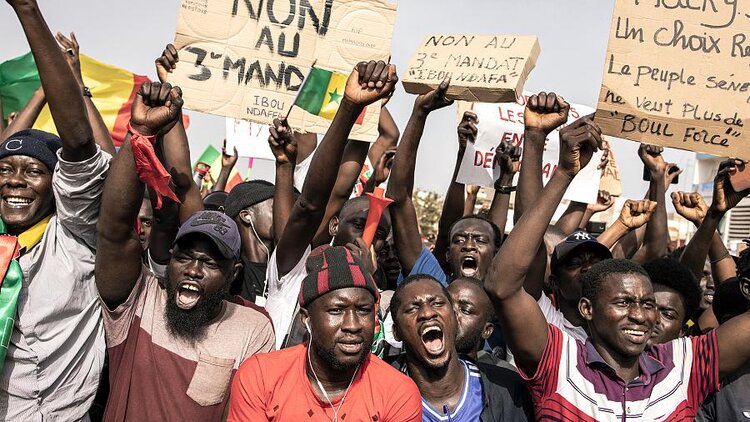Ssebo Lule (Lule Raymond) who was born on 15th February 1991 in Kampala is a Ugandan hip-hop nomad in all senses. He is a Luganda poet, author, actor, rapper, and poetry editor. His poetry advocates for socio-political change, environment conservation, and life-improvement at individual levels.
In 2018, Ssebo Lule published his first all-Luganda poetry collection Ogenda wa? Ebiyiiye Ebisiiga Ekifaananyi Mu Bigambo under Kitara Nation. In 2019, he facilitated the first Babishai Niwe Luganda Poetry Workshop in Kampala as a Luganda poetry writing master class. Ssebo Lule is also member of Ekibiina Ky’olulimi Oluganda (Luganda Society) based at Bulange, Mmengo.
In 2019, Lule started recording music and poetry with his friend Ebrahim Soul’O in Bunga, Kampala Uganda.
In 2020, he made his first film appearance in Swangz Avenue’s short film Rolex. The same year in December, he released his first poetry-and-rap mini-album Piibi EP, solely produced by his friend and teammate Ebrahim Soul’O.
In 2021, he won the PHAU COVID-19 Poetry and Storytelling Competition about Mental Health.
In 2021, his poem Ogenda wa won the Janzi Award for Outstanding Spoken Word.
On 30th March 2022, Lule released his first rap album Muli Mutya on ssebolule.com, an album produced by Ebrahim Soul`o of Aye Creative Studio, mastered by Nase Avater of Portbell Drive and mixed by Timothy Thii of East African records, where Lule is lyrically minded and highly comfortable over just about any kind of beat. Muli Mutya’s sample platter of sounds could be hit-or-miss, but Lule’s steely confidence and flow switch-ups kept the songs on track.

Muli Mutya is more musically focused, foregrounding the bludgeoning low end and minor-key flourishes of indigenous Ugandan hip-hop. Ssebo Lule has an ear for the kind of sounds designed to drive both live crowds and headphone fetishists into fits of those listening to Luganda, and his best songs revolve around menacing, three-dimensional beats. The gloomy stomp of producer Ebrahim’s beat for “Money” evokes vintage Three 6 Mafia and Key Glock in equal measure, while songs like “Nkooye” and “Gamba Ffene”— still produced by Ebrahim—pit victorious samples against weapons-grade 808s.
But Lule is never overwhelmed, his monotone voice cutting through the clatter at every opportunity. Considering that he’s only 31 but still raw, his presence and technique are remarkably sharp—he blends in with the beat without becoming constrained by it, keeping a breakneck pace on “Obudde” and finding pockets you might not expect on “1908, Uganda Empya.”
There’s a handful of lyrical subjects on this album that Lule is keen on:
OBUDDE
When asked about this song Lule says that some of his philosophical opinions about time are in this poem.” I believe time determines everything. This poem was majorly inspired by Ugandan time, a term people in Uganda use to get away with their failure at punctuality”.
MONEY
Lule says that money plays such a big role in our society; the rich are treated with such overflowing respect, whether they ask for it or not. “For a youth, it’s important to make and have money, abundantly. But it’s more important to know how to spend it. Hence this track. Life lessons about money”.
SHHH…
“Shhh… (Silence, of course). In my country, there are many pains we would rather not speak about, to keep ourselves safe. We have grown so used to silence that it’s now some kind of wealth whose value can’t be rightfully evaluated”.
GAMBA FFENE
On this track, Lule says that Uganda is at an international event and it’s expected to display its brightest smile before photographs are taken.” Before Ffene (jackfruit) is cut open, our anticipation is for sweetness. This is almost the same before a photograph of a person is taken. Sweetness, here, is the metaphor for happiness. Dear Uganda, are you truthfully happy”?

MULI MUTYA?
Derived from Oli otya? (How are you?). Sule says that this track mentions the different pains Ugandans have suffered in the recent past, and then asks them about their current state of being. It’s the album’s title track. Muli mutya? /Muli mutya? /Muli mutya? /BannaUganda amazima muli mutya? Again, Ssebo Lule asks Ugandans to be honest about their lives.
OBUSAJJA (99-KABENJE)
On this one, police brutality is the subject. The story is told from a police officer’s point of view. Obusajja is Ugandan ghetto slang for police officers.
1908, UGANDA EMPYA
Uganda was declared the pearl of Africa in 1907. In this track, the repeated question is whether Uganda qualifies to be called the pearl of Africa. Why? You should listen to the track to find out. “Uganda Empya is the future we dream of. It’s beyond politics. It’s social, economic, and life improvement. This track lies between 3 generations; the time before 1908, post-colonial Uganda, and Uganda Empya, the euphoric country we wish to live in in the future”, Lule states.
NKOOYE
On this one, the protagonist is freely speaking his mind on anything that comes to his mind. He’s in a state of emotional catharsis. He’s letting it all out. He’s in love with Uganda but his heart keeps getting broken.
Muli Mutya album only available on ssebolule.com
Ssebo Lule has performed Luganda poetry at several arts shows and festivals like Bayimba arts festival, Babishai Niwe Poetry Festival, Writivism festival, Kampala International Theatre Festival, Doa Doa arts festival, LaBa arts festival, Open Mic Uganda, Kelele@Makerere, Milege, among others.
Lule`s Social Media Accounts are below:
Instagram: @ssebo_lule
Twitter: @SseboLule
Facebook: Ssebo Lule.
Visit the album for streaming and downloading via https://www.ssebolule.com


